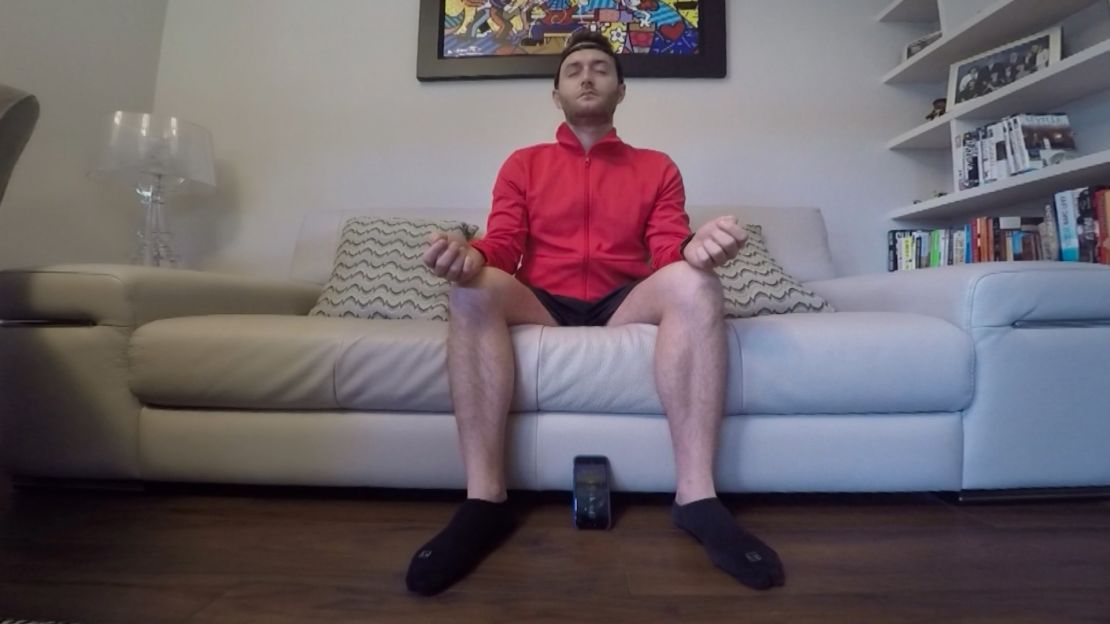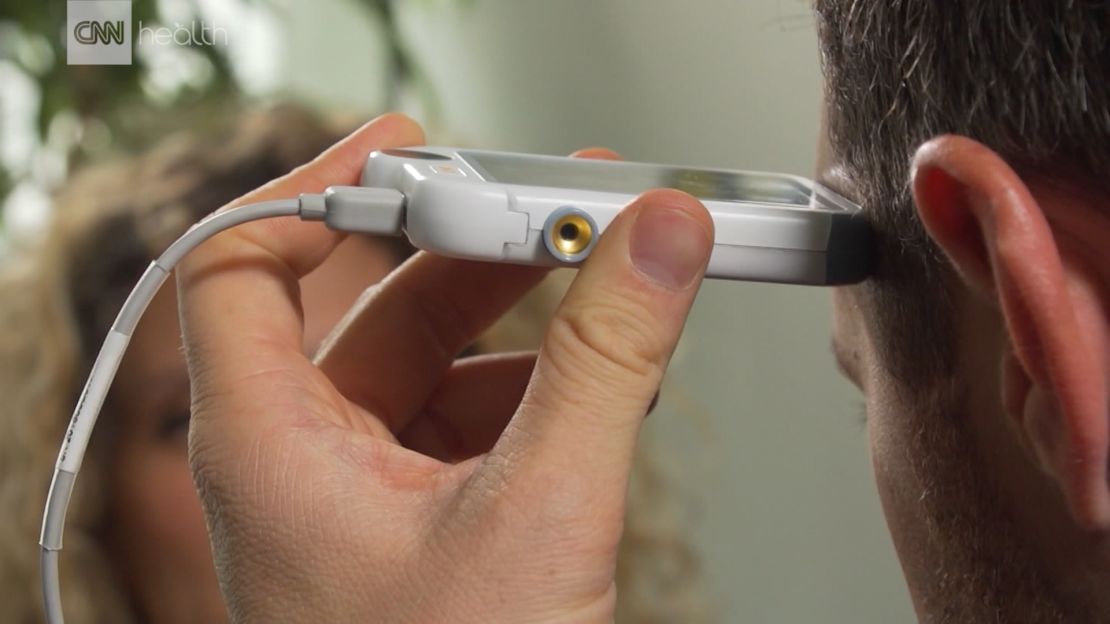Story highlights
Wearables can help change your habits to urge you to walk more, sleep better and meditate
Experts say devices themselves don't improve health, but their ability to motivate does
I’ve hit 10,000 steps! My Fitbit is vibrating and digital fireworks are shooting across the tiny screen on my wrist. The only problem is I haven’t even arrived at my office yet.
I hit the gym before I go to work, and think heck, if I’ve already logged that many steps, why not kick back and chillax the rest of the day? This is the first sign that something is awry on my quest to find out if wearable technology, or wearables, can actually make us healthier.
To find out if that’s true, I’m strapping three wearables in particular to my body for a week-long experiment.
Motivation to move
On top of my Fitbit, I’m also putting the “brain sensing” meditation headband Muse on my head five minutes a day.
I’m also trying out the CheckMe health monitor, a small device which can check for more things than I ever care to know I may have. Among its capabilities is its role as a sleep monitor, thermometer and even an electrocardiogram (ECG) monitor.
To get some real perspective on all this, I enlisted the help of a medical professional. Given my routine includes a morning workout, the first thing I want to know is whether I can take the elevator instead of the stairs for the rest of the day, now that I’ve hit my 10,000 steps … even if it is only 11 a.m.
“I think there is negative reassurance,” Dr. Ellie Cannon, a general practitioner in the UK, tells me about these devices. “You’ve done your 10,000 steps and that will make you think ‘OK, great, I’m going to have a donut for breakfast,’ and it’s that sort of reassurance that is actually not particularly positive.”
Nevertheless, Cannon and the other medical professionals I speak to are cautiously optimistic about wearables.
Even with some studies contradicting how effective they are, obesity is a global epidemic, so doctors are generally keen for people to try anything reasonable to help us get off the couch.
A recent study found that more than 2 billion adults and children globally are overweight or obese and suffer health problems because of it.
“There is no doubt about it that we need to move more,” Cannon says. “So anything that gets us moving, gets us counting steps, tells us to stand up and sit down, I think is going to be good,” said Cannon.
Guess I’ll keep taking the stairs.
Calming your brain – by reading it
Next, I strap the Muse to my head which, from the outset, was the device I was most skeptical about. I have a hard time believing this headband can really read my brain waves.

The device claims to guide you through meditation by reading your brain activity. It connects to your phone via an app while you meditate and changes sounds being played, such as wind or waves, based on how calm or active your brain is. Sounds are made louder and more harsh when your mind is not clear, or calm.
I push start, roll my eyes and start thinking about everything I need to get done.
The waves start crashing with intensity! OK, OK. I’ll try and focus on not focusing on anything!
Surprisingly I start letting go and the waves stop crashing.
Over the week, I find this to be the most rewarding of all the wearables I test. I have no idea if it’s a placebo effect or not, but in the end I stop caring about that.
Just taking the five minutes to meditate with this device each day is starting to become a relaxing pattern. Or maybe I just like the sounds of nature. Either way, I am more relaxed.
A digital check-up
I’m the most intimidated by the large CheckMe monitor I now carry around with me. It seems like it can check me for nearly everything a nurse would screen me for before the doctor comes in the room for my annual check-up.

Right now, it says my temperature is fine and my pulse is normal. But it does so much, including checking blood pressure and oxygen levels, that I get the sense it might be better for someone who has serious medical concerns.
I’m mostly overwhelmed by all the data this device gives me. Some of the heart data it gives while doing my ECG even makes my mom nervous, making her insist I go to the doctor – a real one.
“People need to be aware that the data isn’t necessarily 100% accurate and not something that you need to be diagnosing yourself from,” Cannon reassures me. “I don’t think it can be interchangeable with me taking your pulse or me taking your blood pressure, but I think they can be a useful way for you to empower your own exercise regime,” she says.
After all that, with so many capabilities to check for so many potential problems, I may keep CheckMe in mind if I ever have serious health issues.
The challenge to stay inspired
For now, I have stopped wearing my Fitbit. In the end, it’s just too much hassle keep both it and my phone charged.
And even though the “brain sensing” Muse is the device that most surpassed my expectations, I haven’t used it after my week of experimentation.
Join the conversation
In the end, the best wearable I’ve found are my pants. When they stop fitting, it will give me an alert I need to boost my activity levels and weight loss regimen.
But for others, the more technological route may indeed the best source source of inspiration.
“They really make it easier for people to work out and that’s ultimately what we want,” said Dr. Tara Narula, a cardiologist at Lenox Hill Hospital in New York. “[We want] people to find ways to incorporate working out and exercise into their daily lifestyle and routine so it becomes habit.”
While some devices suggest seeing a doctor before using them, Narula believes this is not necessary for everyone.
“If you’re beginning a low to more moderate exercise and you’re a relatively healthy person, then you don’t really need to see a doctor and have a stress test,” she said. “If you have a heart disease or history of other risk factors and you’re planning to do a moderate or vigorous exercise, then see your doctor for an evaluation first.”




